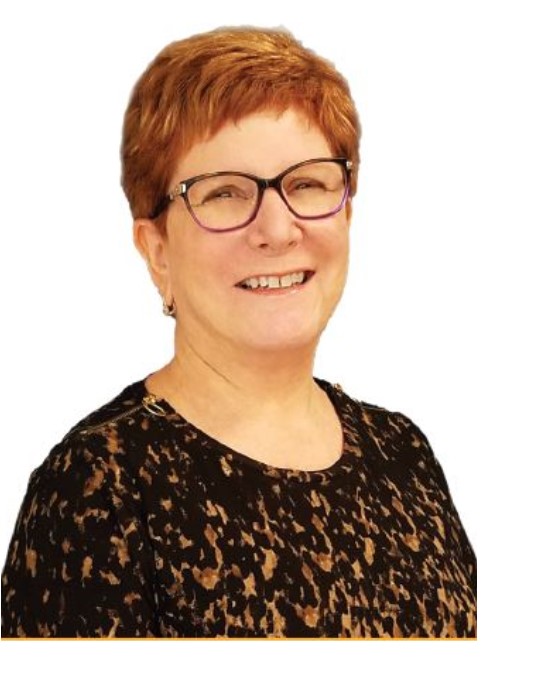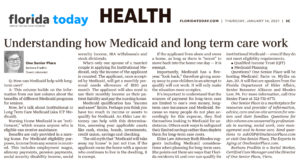
 Barbara Fradkin – Special to FLORIDA TODAY
Barbara Fradkin – Special to FLORIDA TODAY
Reader Question: How can Medicaid help with long-term care?
Answer: This column builds on the information from our last column about the benefits of different Medicaid programs for seniors.
 Now, let’s talk about Institutional or Long Term Care Medicaid (aka ICP Medicaid).
Now, let’s talk about Institutional or Long Term Care Medicaid (aka ICP Medicaid).
Nursing Home Medicaid is an “entitlement,” which means anyone who is eligible can receive assistance.
Benefits are only provided in a nursing home. For Medicaid eligibility purposes, income from any source is counted. This includes employment wages, alimony payments, pension payments, social security disability income, social security income, IRA withdrawals and stock dividends.
When only one spouse of a married couple is applying for Institutional Medicaid, only the income of the applicant is counted. The applicant, once accepted by Medicaid, will get a monthly personal needs allowance of $130 per month. The applicant will also need to use their monthly income as their patient liability and pay the nursing home.
Medicaid qualification has “income and asset” limits. Perhaps you think you have too much in income or assets to qualify for Medicaid. An Elder Law Attorney can help with this determination, assessing your applicable assets like cash, stocks, bonds, investments, credit union, savings and checking.
The old myth that “Medicaid will take away my house” is just not true. If the applicant owns the home with a spouse who continues to live in the dwelling, it is exempt.
If the applicant lives alone and owns a home, as long as there is “intent” to move back into the home one day — it is exempt.
Importantly, Medicaid has a five-year “look back;” therefore giving money away to your children in an attempt to qualify will not work. It will only make the situation more complex.
It’s important to understand that the sources of payment for long-term care are limited to one’s own money, long-term care insurance and Medicaid. Because so many people do not plan accordingly for this expense, they find themselves looking to Medicaid for assistance. Others seek ways to safeguard their limited savings rather than deplete them for long-term care costs.
Elder Law Attorney Ruth Rhodes suggests including Medicaid considerations when planning for long-term care. She points out there are ways that Florida residents 65 and over can qualify for Institutional Medicaid — even if they do not meet eligibility requirements.
• Qualified Income Trust (QIT)
• Medicaid Planning
Questions? One Senior Place will be hosting Medicaid: Facts vs. Myths on Jan. 20. It will feature speakers from the Florida Department of Elder Affairs, Senior Resource Alliance and Rhodes Law, PA. For more information, call One Senior Place at 321-751-6771.
One Senior Place is a marketplace for resources and provider of information, advice, care and on-site services for seniors and their families. Questions for this column are answered by professionals in nursing, social work, care management and in-home care. To submit a question, send an email to askOSP@OneSeniorPlace.com or visit One Senior Place, The Experts in Aging at OneSeniorPlace.com.
Barbara Fradkin is a Social Worker, Certified Care Manager and the Director for One Senior Place, Viera.


